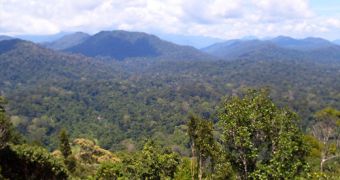A recent report revealed some very interesting facts concerning the leader of one Malaysian state. Thus, Abdul Taib Mahmud, presently in charge of looking after the state of Sarawak, is supposedly worth as much as $15 billion (€11.49 billion), in spite of the fact that his official incomes are those of a civil servant.
According to The Taib Timber Mafia report, this situation can only be explained if one accepts the idea that this man, together with his family, needs to be held responsible for becoming involved in various activities having to do with illegally trading timber.
Mongabay informs us that, as far as the people who brought forth this report are concerned, Abdul Taib Mahmud is guilty of, “(...) corruption and abuse of public funds to enrich himself, his family and his political allies through land appropriation and destructive logging of the Borneo rainforest.”
Therefore, “The Bruno Manser Fund is therefore calling on anti-corruption and anti-money-laundering authorities worldwide to investigate.”
Apparently, what caused this group of people to begin their own private investigation of Taib Mahmud, his family and the links they have with the timber industry was the fact that, ever since 1991, Sarawak's government had forbidden various organizations to inspect and evaluate the state's forests.
Interestingly enough, the Bruno Manser Fund states that, whereas this man has recently said that more than two thirds of Sawarak's forest cover are presently left untouched by the timber industry and similar other activities, satellite images have shown that only 5-10 of these wilderness areas are in fact intact.
Further accusations have to do with the fact that, in order to have access to these lands, Taib Mahmud became involved in a series of activities intended to drive indigenous communities off their lands.
Hopefully, information concerning responses to this report will soon be made available to the general public.
More so given the fact that, should these statements prove to be accurate, the implications for environmental protection are not at all negligible.

 14 DAY TRIAL //
14 DAY TRIAL //